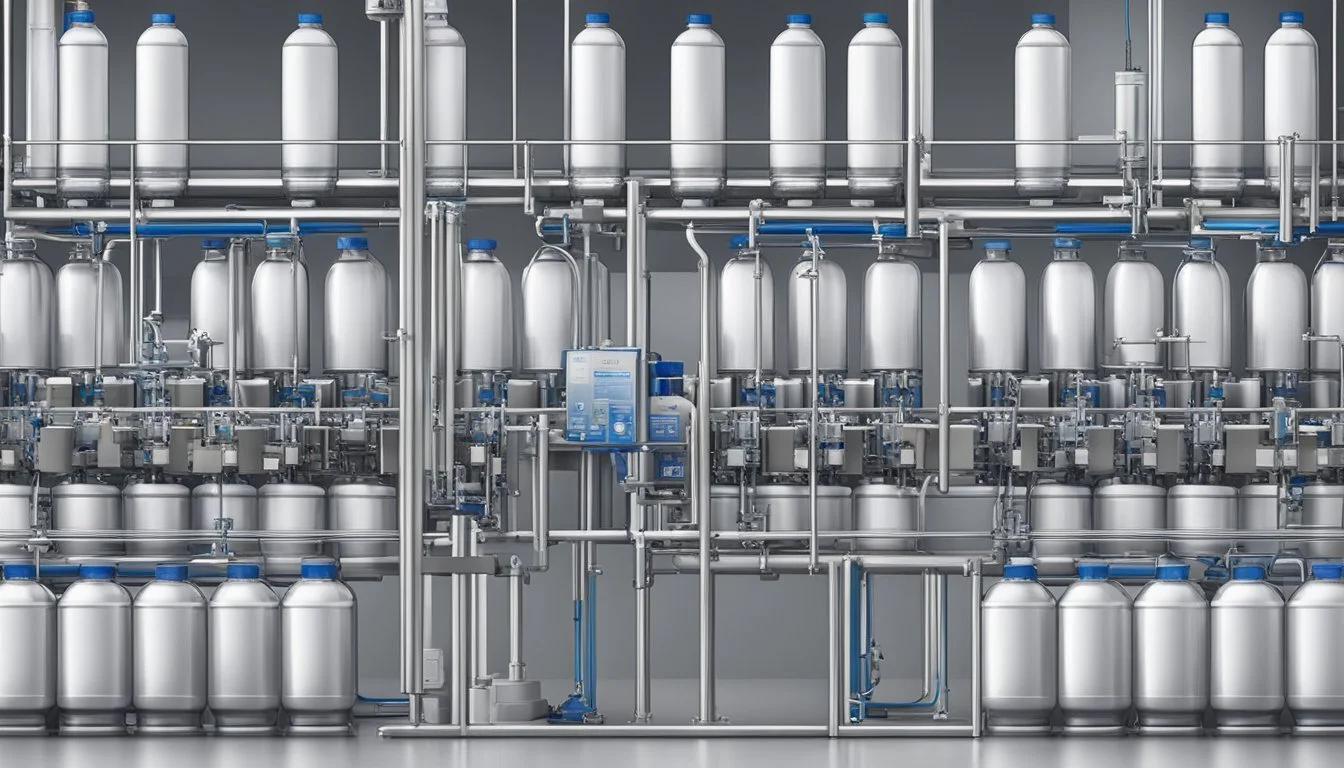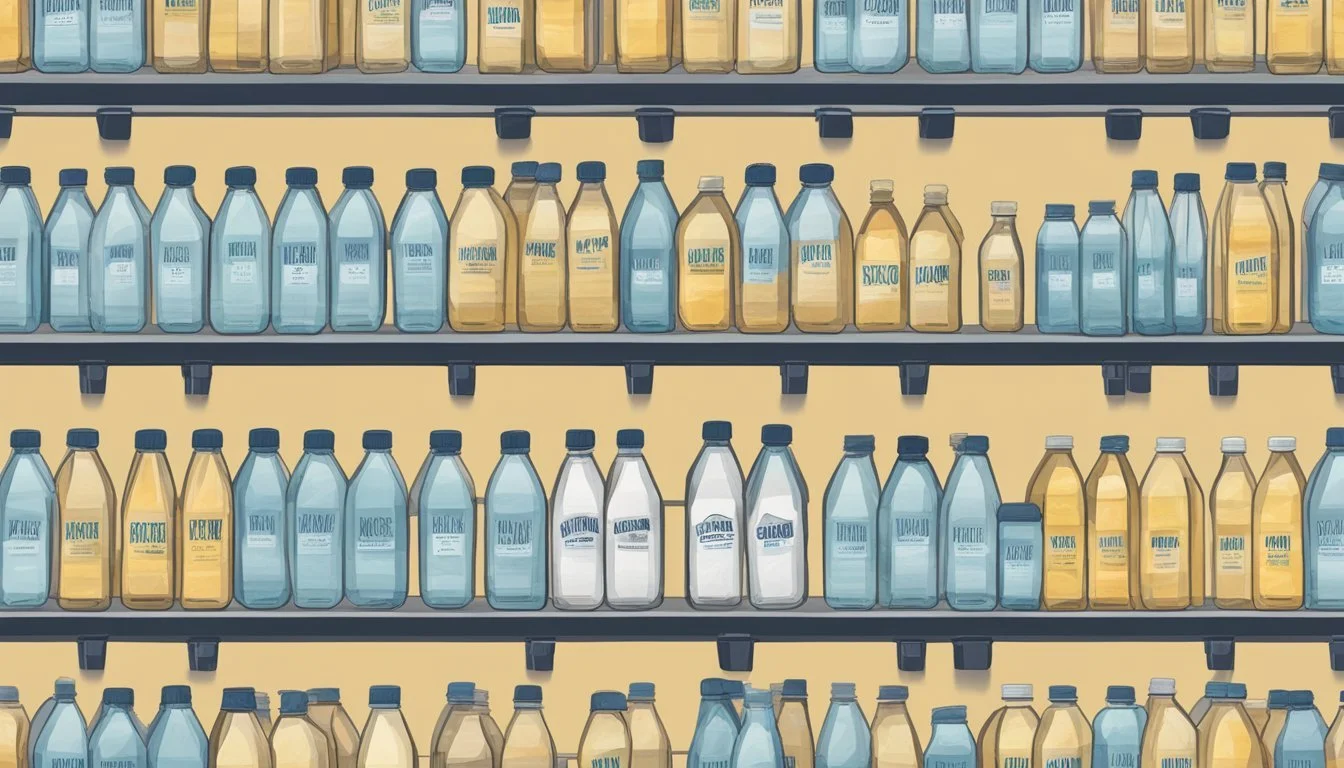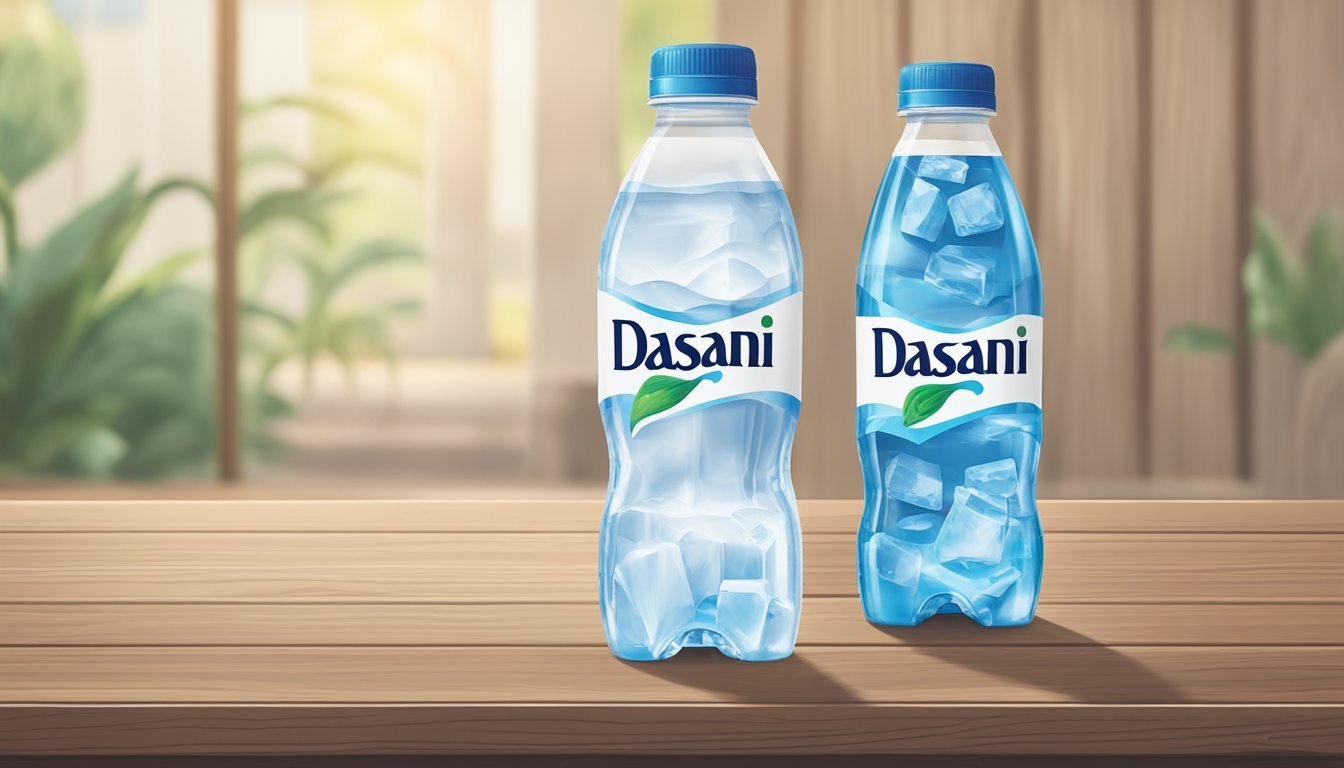Boxed Water vs. Dasani
A Comprehensive Comparison of Bottled Water Brands
In the realm of personal hydration, consumers are continuously met with an array of choices, particularly when it comes to bottled water. Among these, two brands often surface in discussions of preference and quality: Boxed Water and Dasani. Each brand presents its own unique selling points, from the environmental considerations of Boxed Water's packaging to Dasani's wide availability and advanced filtration process.
Boxed Water touts an eco-friendly approach by using cartons made from paper, a renewable resource, while advocating for sustainable forest management practices. This has resonated with environmentally conscious consumers seeking to reduce their carbon footprint. Dasani, on the other hand, a product of The Coca-Cola Company, is known for its distinct mineral additive formula which aims to enhance the beverage's taste.
Understanding the differences between these two brands is not merely a commentary on taste but also reflects a broader dialogue about environmental impact, health implications, and brand trustworthiness. With a growing emphasis on the environmental aspects of packaging and the source of water used, consumers face a complex decision-making process. The comparison becomes less about choosing a mere drink and more about selecting a brand whose values and practices align with personal priorities and beliefs.
Environmental Impact and Packaging
When considering the environmental impact of bottled water, the packaging is a crucial factor. Different materials and production processes can significantly influence a product's sustainability and carbon footprint.
Boxed Water Packaging
Boxed Water's packaging predominantly consists of paper, a renewable resource, and they claim to use sustainable methods in their production. Their cartons are composed of about 74% paper, 20% plastic, and 6% aluminum, aiming to be an alternative to traditional 100% plastic water bottles. Recycling availability for these cartons can vary by region, impacting their environmental effectiveness.
Dasani's Plastic Bottles
Dasani, on the other hand, uses plastic bottles which are widely recognized for their environmental concerns, including the potential to contribute to pollution if not disposed of properly. However, they do have initiatives aimed at reducing their packaging impact, such as the introduction of Dasani PureFill water dispensers that encourage refilling over single-use bottles, and plans to use more recycled materials in their product.
Comparative Sustainability
Boxed Water
Packaging: Paper-based, with some plastic and aluminum
Renewability: Paper is a renewable resource
Recycling: Dependent on local facilities' capabilities
Dasani
Packaging: Predominantly plastic
Renewability: Plastic comes from non-renewable fossil fuels
Recycling: High accessibility but often low recycling rates
Both companies are exploring and implementing various methods to reduce their carbon footprint and enhance the sustainability of their packaging, understanding their role in protecting the environment. The effectiveness and environmental impact of these solutions depend on several factors including production processes, transportation, and consumer recycling behaviors.
Health and Safety Considerations
When choosing between Boxed Water and Dasani, it's essential to consider their health and safety profiles in terms of mineral content, potential contaminants, and adherence to regulations.
Mineral Content and Quality
Boxed Water and Dasani both contain minerals that are vital for hydration and health. Dasani includes added minerals for taste, such as magnesium sulfate, potassium chloride, and salt. Boxed Water claims to use a multi-step purification process, which includes reverse osmosis and carbon filtration, that delivers pure water without added electrolytes.
Contaminants and Purity
The purity of bottled water is crucial for safety and health. Dasani water is sourced from local municipal water supplies and undergoes treatment, including filtration, UV disinfection, and ozonation to remove contaminants. Boxed Water highlights its use of UV sterilization, which can eliminate pathogens. A significant concern for bottled water is the presence of microplastics, heavy metals, and PFAS chemicals, which are potentially harmful over time. Both brands are expected to meet or exceed FDA standards for contaminants and purity.
FDA Regulations on Bottled Water
The FDA monitors bottled water and requires manufacturers to meet strict safety and quality standards. This includes regular testing for chemical, physical, microbial, and radiological contaminants. Bottled water, including brands like Boxed Water and Dasani, should not contain fluoride, chlorine, bromate, arsenic, or any contaminants above the set limits. Both brands are subject to these regulations and must comply to ensure the safety of their products.
Source and Production Process
In the comparison between Boxed Water and Dasani, it is crucial to examine the origins of the water each brand uses and the specific methods by which the water is treated and prepared for consumption.
Natural Sources of Water
Boxed Water typically sources its water from municipal supplies or natural springs. The brand emphasizes the use of natural water that is later refined. It markets itself by highlighting the sustainable aspect of its water source and the lower carbon footprint of its packaging.
Dasani, on the other hand, uses filtered tap water, acquired from local water supplies. In some cases, the water comes from the same sources as the community's tap water. The brand faced controversy in the past for the source of its water, which led to some criticism related to the value offered versus the price charged.
Manufacturing and Filtration Processes
The filtration process for Boxed Water involves several stages, including ultraviolet light exposure, carbon filtration, and a proprietary mineral-removal process. They claim that this makes their purified water free from contaminants commonly found in municipal water supplies.
Dasani utilizes a process that includes filtration, mineral addition, and ozonation. The water undergoes multiple filtration steps to remove impurities, followed by the addition of a specific mix of minerals for taste before being disinfected with ozone. This process aims at ensuring that the purified water meets the brand's taste and quality standards.
Both brands employ advanced filtration and purification techniques to ensure their water meets regulatory standards and is safe for consumption. While Boxed Water focuses on sustainability, Dasani emphasizes the consistency and purity of its product.
Taste and Consumer Preferences
When choosing bottled water, consumers often consider taste as a primary factor. Blind taste tests reveal that flavor profile and individual taste can influence preferences significantly.
Flavor Profile Comparison
Boxed Water presents a flavor that many discern as clean and neutral, lacking the distinctive mineral taste that some other brands may have. Dasani, meanwhile, has been noted by some consumers to contain a slight salt addition, which can affect the overall flavor. This difference in taste could be attributed to the minerals added during the bottling process to enhance taste. Consumers often have distinct opinions on preferring either the pure taste of Boxed Water or the mineral-enhanced flavor of Dasani.
Water Sommelier Insights
Water sommeliers, who specialize in the taste and pairing of water with food, might assess bottled waters on nuances that average consumers might overlook. In taste evaluations by water sommeliers, Boxed Water could be characterized by its terroir - an essence of the source's environment. For Dasani, the sommelier might note the intentional flavor profile created by Coca-Cola, which includes minerals for a consistent taste experience. These insights suggest that for some consumers, the perception of water taste goes beyond thirst quenching to include the sophistication of flavor nuances.
Market Position and Brand Perception
In the competitive landscape of bottled water, each brand aims to establish a significant market presence while managing public perception favorably. Dasani, a Coca-Cola product, and Boxed Water challenge each other on these fronts with different strategies and brand images.
Social Media Presence and Public Opinion
Dasani has leveraged its parent company Coca-Cola's robust marketing machinery to maintain a visible presence on platforms like Twitter and in various media outlets. Despite a strong market position, Dasani has encountered public scrutiny, partially manifesting in social sentiment that recalls events that may portray the brand negatively, such as the surplus of stock during the early pandemic period. However, Dasani continues to enjoy a decent market share, evidence of an enduring consumer base.
Boxed Water, on the other hand, capitalizes on environmental concerns, using its packaging as a distinctive element to position itself as a more sustainable choice. The brand's social media strategy often highlights its eco-friendly image, a factor that resonates well with environmentally conscious consumers. Reports from sources like Business Insider reinforce this perception by emphasizing Boxed Water's sustainability efforts.
Competitor Analysis
Market Position:
Dasani: Positioned as a market leader within its category, holding a substantial global share, bolstered by Coca-Cola's extensive distribution network.
Boxed Water: A challenger brand that differentiates through sustainability, aiming to capture the environmentally-conscious segment of the market.
Brand Perception:
Dasani: Perceives itself as a premium product, yet faces competition from other brands like Nestlé's offerings. Consumers have mixed feelings, reflecting the balance between brand loyalty and rising environmental concerns.
Boxed Water: Enjoys a favorable brand perception among consumers who value sustainability, often cited as a differentiator from other bottled water competitors, including Dasani.
In essence, while Dasani benefits from the reach and resources of Coca-Cola, positioning it effectively in the market, Boxed Water carves out its niche with a focused brand persona that appeals to eco-conscious consumers. Both brands navigate the bottled water market with distinct strategies reflective of their unique selling propositions and consumer expectations.
Conclusion and Recommendations
In choosing between Boxed Water and Dasani, consumers should weigh factors such as environmental impact, taste, and water sourcing.
Making an Informed Choice
Consumers looking for hydration options face a myriad of choices, but the decision often comes down to personal values and priorities. Boxed Water boasts eco-friendly packaging and a commitment to sustainability, potentially appealing to environmentally conscious buyers. In contrast, Dasani—often criticized for its taste due to added minerals—provides widespread availability and a familiar name. Consumers should consider both the environmental implications of their purchase and their own taste preferences when making an informed choice.
Boxed Water: Eco-friendly, sustainable packaging; neutral taste
Dasani: Wide availability; taste altered by added minerals
Future Trends in Bottled Water
The bottled water industry is moving towards incorporating innovation and sustainability into their products. Future trends indicate a growing consumer demand for eco-friendly options and brands that prioritize the environment. Companies are expected to explore innovative materials for packaging and focus on reducing their carbon footprint. Consumers can anticipate a greater variety of sustainable bottled water products as companies strive to meet this demand. The bottom line is that ongoing advancements will likely provide options that align with a broad range of consumer values, from environmental impact to health considerations.
Future Trends:
Eco-friendly packaging solutions
Reduced carbon footprint measures
Enhanced water purification processes
Bottled water companies will continue adapting to consumer preferences and future trends in a market that values both quality hydration and environmental responsibility.





